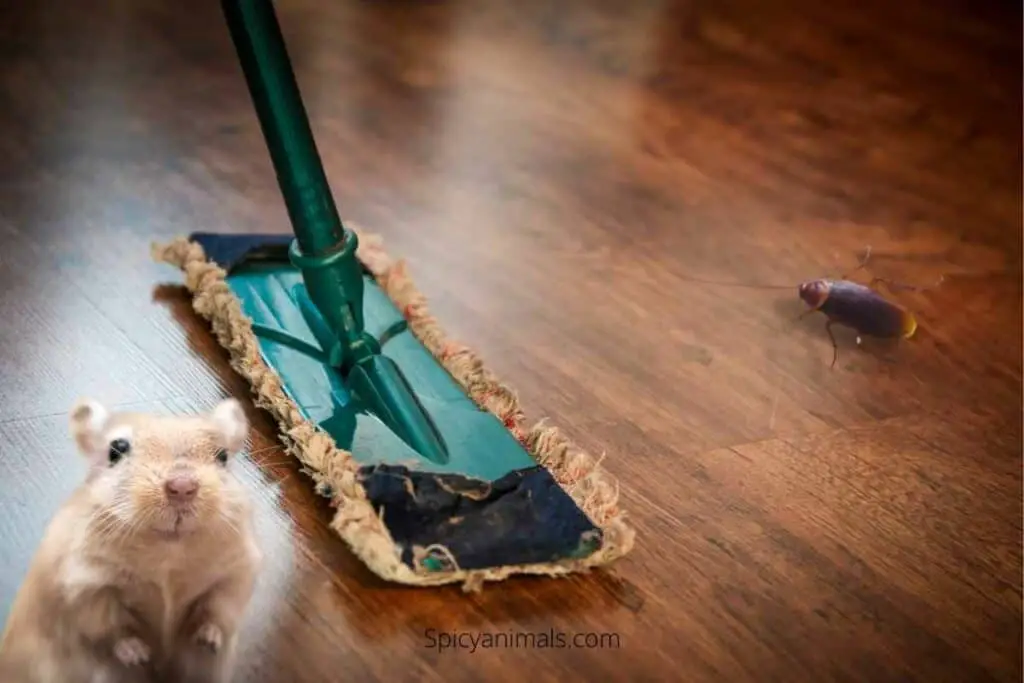Are you considering getting a pet rodent? Discover the best options for beginners and find the perfect furry companion to add joy to your life.
When it comes to the best rodent to keep as a pet, there are several options to choose from. Rats are considered to be the most affectionate rodents, forming strong bonds with their owners and enjoying cuddles and petting. Gerbils are also sociable and enjoy interacting with their owners, although they may not sit still for cuddles.
Hamsters can be affectionate but might not enjoy being handled as much as rats or gerbils. Guinea pigs are gentle and rarely bite, making them good pets for children. Chinchillas are more independent and prefer to explore rather than being held, while mice are slightly more nervous but can become tame with regular handling. It’s important to find a rodent species that fits your lifestyle and to spend time taming and socializing them to build a bond of trust and affection.
Table of Contents
Key Takeaways:
- Rats are the most affectionate pet rodents, forming strong bonds with their owners.
- Gerbils are sociable and enjoy interacting with their owners.
- Hamsters can be affectionate but may not enjoy being handled as much as other rodents.
- Guinea pigs are gentle and rarely bite, making them suitable pets for children.
- Chinchillas are more independent and prefer exploration over being held.
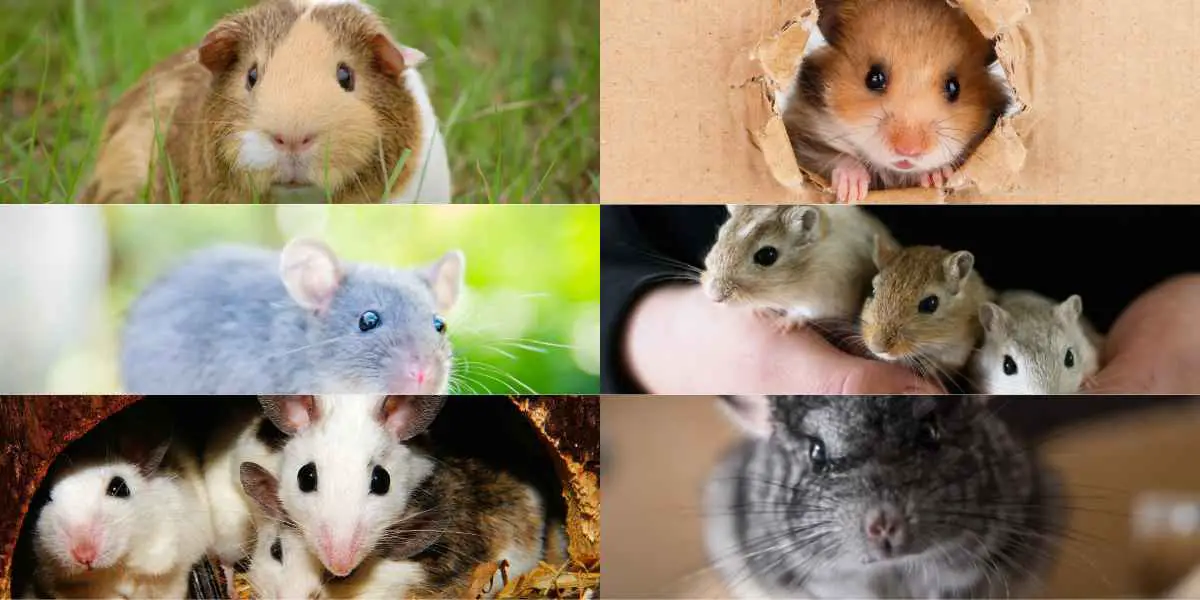
Different Types of Pet Rodents
From small and furry to playful and sociable, there are various types of pet rodents that can make delightful companions. Whether you’re a first-time pet owner or an experienced rodent enthusiast, it’s important to choose the right species that suits your lifestyle and preferences.
1. Rats
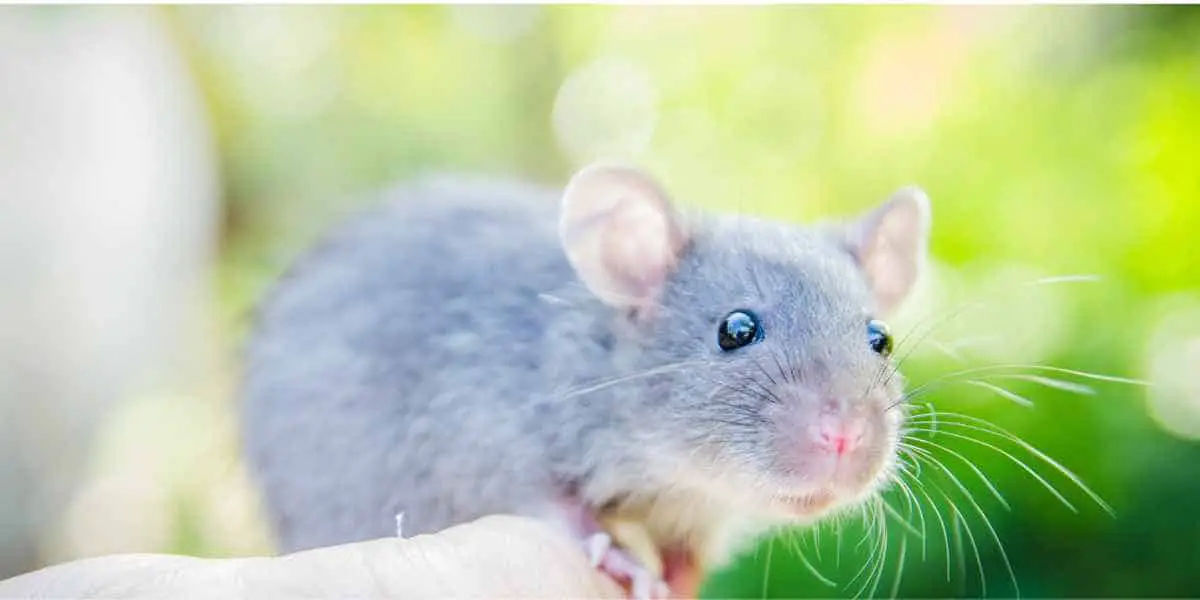
Rats are often considered to be the most affectionate pet rodents. They form strong bonds with their owners and enjoy cuddles and petting. With their playful and intelligent nature, rats can provide hours of entertainment and companionship.
2. Gerbils
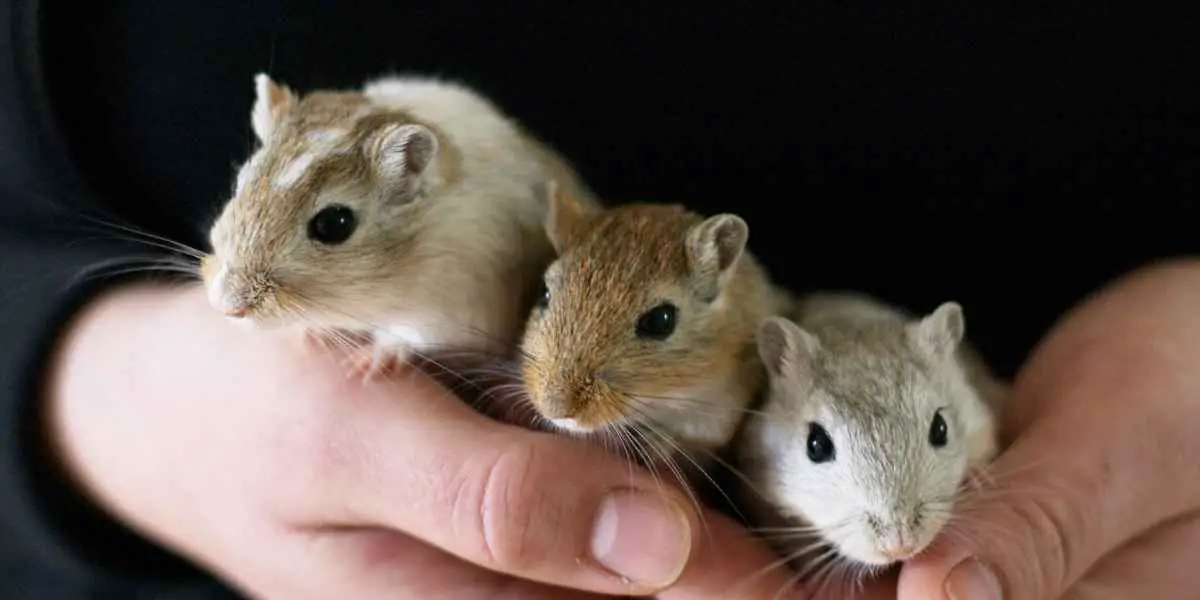
Gerbils are sociable creatures that love to interact with their owners. They are energetic, curious, and can be quite entertaining to watch. While they may not sit still for cuddles like rats, their friendly nature makes them great companions.
3. Hamsters

Hamsters come in different breeds, each with their own unique characteristics. Some hamsters can be affectionate, but they might not enjoy being handled as much as rats or gerbils. However, they are still delightful to observe and can provide endless entertainment in their habitat.
4. Guinea Pigs
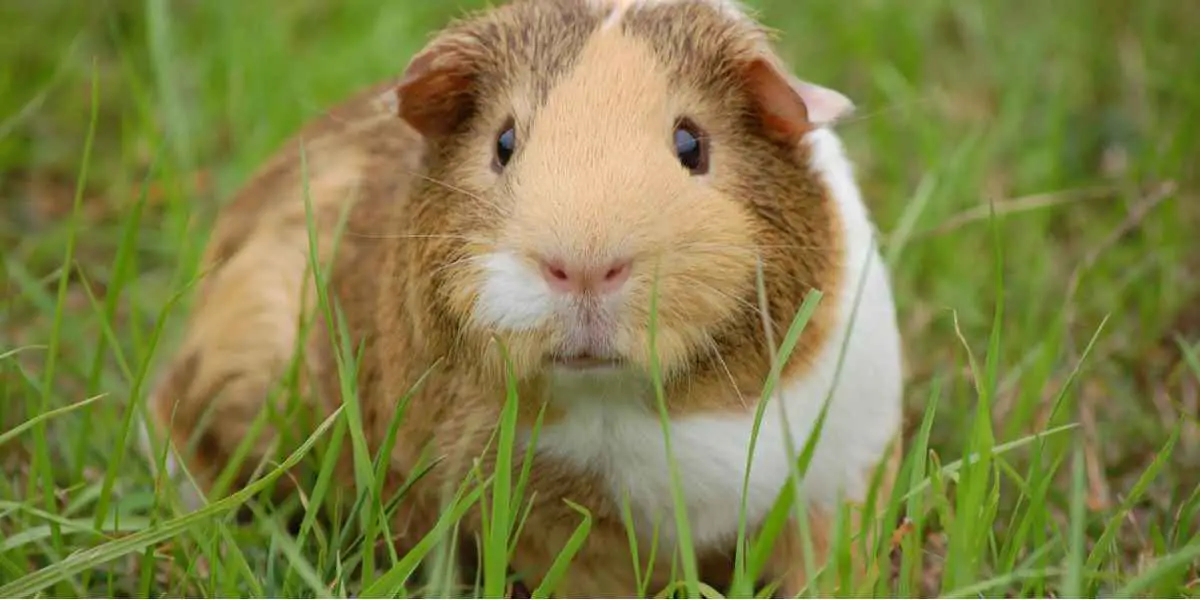
Guinea pigs are gentle and rarely bite, which makes them excellent pets, especially for children. They have a friendly and sociable nature, enjoying interaction and forming strong bonds with their owners. Guinea pigs also have adorable personalities that can brighten up any home.
5. Chinchillas
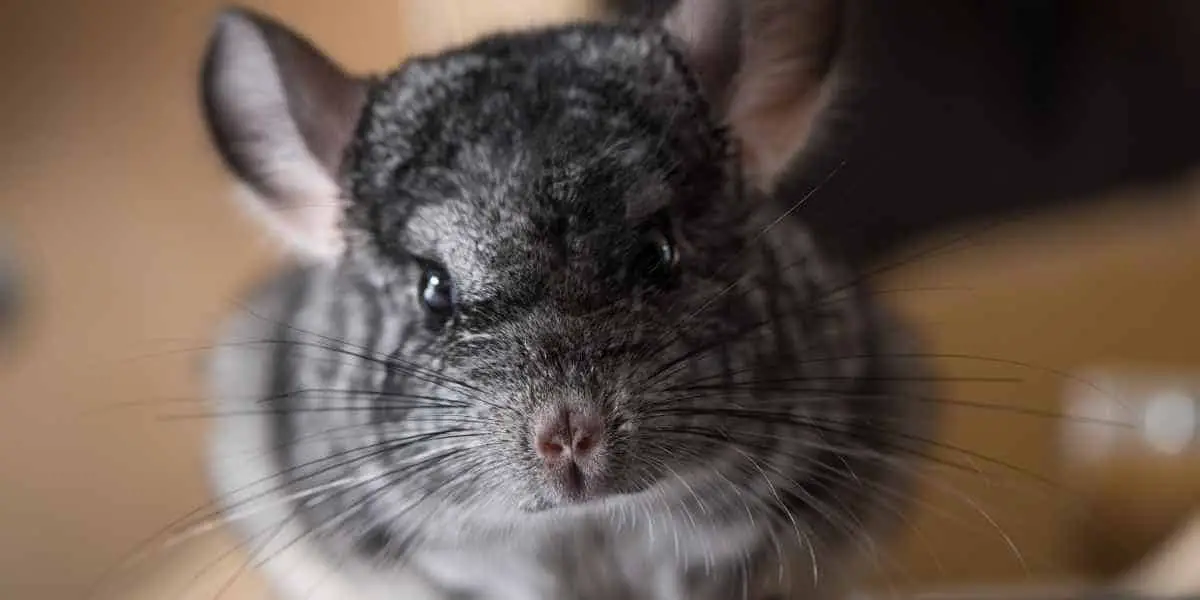
Chinchillas are known for their independent and curious nature. They prefer to explore their surroundings rather than being held, making them suitable for those who prefer a more hands-off approach. These fluffy creatures can bring joy to any home with their playful antics.
6. Mice
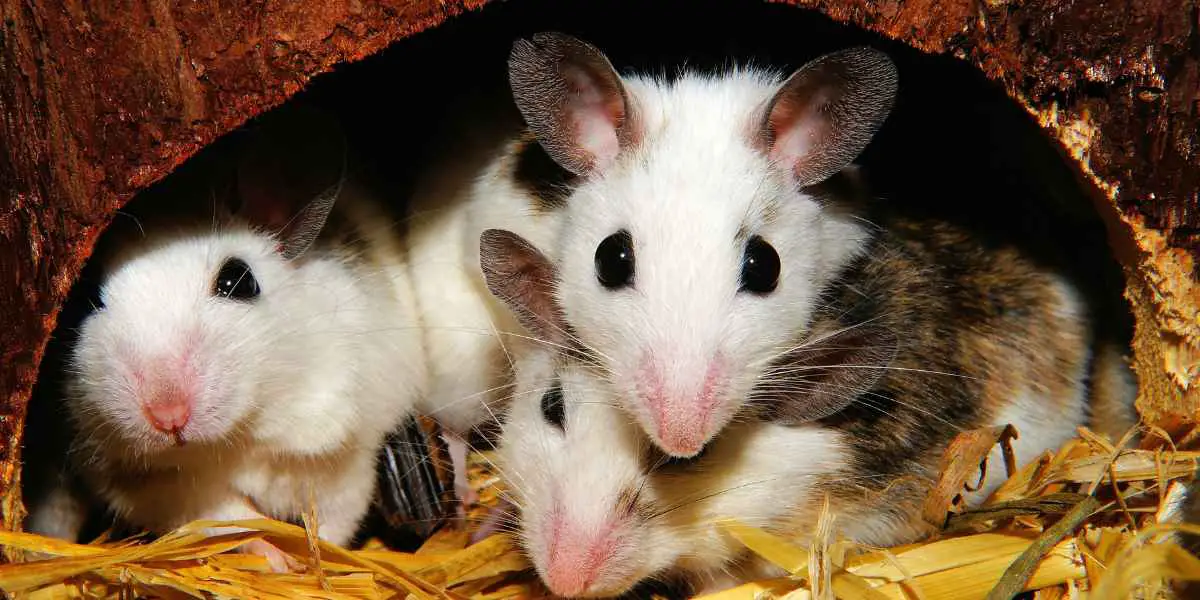
Mice are slightly more nervous compared to other pet rodents, but with regular handling, they can become tame and sociable. They require patience and gentle guidance to build trust, but their small size and inquisitive nature make them adorable companions.
| Type of Rodent | Affectionate Level | Interaction | Child-Friendly |
|---|---|---|---|
| Rats | High | Loves Cuddles | Yes |
| Gerbils | Moderate | Interactive | Yes |
| Hamsters | Varies by Breed | Playful | Yes |
| Guinea Pigs | High | Social | Yes |
| Chinchillas | Low | Explorer | Yes |
| Mice | Low | Tameable | Yes |
Caring for Commonly Kept Pet Rodents
Proper care is crucial for the well-being of your household pets, particularly if you keep rodents as pets. Learn all about their diet, habitat requirements, exercise needs, and essential healthcare tips to ensure they enjoy a full lifespan.
First and foremost, it’s essential to provide your rodent pets with a balanced and nutritious diet. Whether you have a Syrian hamster, pet mice, or a degu, commercial rodent pellets found in pet stores are a good base. You should also supplement their diet with fresh fruits and vegetables, and even vitamin C for species like guinea pigs. For those looking to domesticate rodents, it’s important to avoid foods toxic to these small animals, such as chocolate, caffeine, and certain fruits like grapes and citrus.
Creating the right habitat is a crucial step when caring for a pet rodent. Make sure they have a spacious cage with a plastic base, providing plenty of room for them to run around. Include hiding spots and toys to keep them entertained. Bedding made from materials like paper-based litter or aspen shavings is ideal, as you should avoid cedar and pine, which can be harmful to rodents.
Physical exercise is key for the well-being of rodents kept as pets, be it hamsters and guinea pigs or more exotic options like the cavy. Provide them with an exercise wheel, running ball, or even tunnels to explore. These are all commonly kept items found in pet stores. For social animals like domesticated rats and female mice, supervised playtime outside the cage can be especially beneficial. Just make sure the space is rodent-proof.
Veterinary care is essential for your commonly kept pet rodents’ overall health. Find a veterinarian experienced in small mammals and schedule regular check-ups. Rodents are masters at hiding illness, so be vigilant about changes in behavior, appetite, or appearance. For example, look out for large eyes or bushy tails that may indicate distress. Additionally, maintain a clean living environment, which includes regularly changing the litter, to help prevent diseases and parasites.
When deciding which rodents to keep as pets, consider factors like size and social needs. For instance, Syrian hamsters live two to four years and are usually about 10 inches long, whereas pet mice and gerbils are good pocket pets that are similar in size. Some, like chinchillas, need to take dust baths and love to chew on wooden toys. Rats live 2-3 years and are active and social, while guinea pigs make excellent pets that enjoy spending time with their human companions.
Some rodents, like degus and chinchillas, are larger rodents that are kept in pairs or groups. They are more social but require more space. Choose the pet that best suits your lifestyle and resources, keeping in mind that some species like male mice and males from other species tend to fight when kept together.
| Essential Care Tips for Pet Rodents |
|---|
| Provide a balanced diet of commercial pellets, fresh fruits, and vegetables |
| Ensure a spacious cage with hiding spots, toys, and suitable bedding |
| Encourage regular exercise with wheels, tunnels, and supervised playtime |
| Schedule regular check-ups with a veterinarian experienced in small pets |
By carefully considering your options and the range of small rodents commonly kept as pets, you can select the pet that best suits your lifestyle and resources. Whether you’re interested in common pet options like Syrian hamsters and mice or looking into larger rodents such as degus and chinchillas, understanding their specific needs and characteristics will help you provide them with a fulfilling life.
Affectionate Pet Rodents: Why Pet Rats are Among the Best Small Rodents to Keep
If you’re in the market for a furry friend who will shower you with affection, pet rats are an excellent choice. These domesticated pets are renowned for their friendly nature and ability to make wonderful companions. Discover why they stand out among many small rodent options, such as mice as pets or even Mongolian gerbils.
When it comes to affectionate pets, few can rival the love and devotion of pet rats. These intelligent rodents require social interaction and have a natural propensity for forming strong bonds with their owners. They enjoy cuddles, and gentle petting, and will often actively seek out human companionship. Rats are social animals that thrive on relationships, making them ideal for individuals or families looking for a friendly and loving pet.
What sets pet rats apart from other domesticated rodents, e.g., pet hamsters or mice, is their remarkable emotional intelligence. They exhibit a higher level of understanding and responsiveness to human emotions compared to other rodent species. Furthermore, rats are known for their trainability. These quick learners are eager to please and, with patience and consistent interaction, can be taught to perform simple tricks and even respond to their names by the time they’re just 10 to 12 weeks old.
It’s worth noting that male rats tend to be less aggressive compared to males in other rodent species where males tend to fight. This makes them suitable for being kept in larger groups. However, like many small rodents, they can have large litters, ranging from 4 to 5 pups, which is something to consider if you’re thinking about breeding them.
Additionally, their dental health shouldn’t be overlooked; their incisors continue to grow and will require regular chewing activities to maintain proper length and health.
| Rat Breed | Characteristics |
|---|---|
| Dumbo Rat | Large, floppy ears; friendly and gentle temperament |
| Hairless Rat | No fur; warm and affectionate; requires specialized care |
| Rex Rat | Curly and soft fur; playful and cuddly |
When comparing affectionate small rodents to keep, pet rats often top the list. They not only bring emotional depth but also offer social interaction that’s hard to find in other domesticated pets. Whether it’s their natural intelligence or their social nature, pet rats make for an emotionally enriching addition to any household.
Good Pets for Children – Guinea Pigs
Are you considering a pet rodent for your child? Learn why guinea pigs are a fantastic choice, with their gentle nature and low risk of biting.
When it comes to the best rodent to keep as a pet, guinea pigs are often at the top of the list, especially for families with young children. These adorable creatures are known for their social nature and make great companions for kids.
Guinea pigs have a gentle disposition and are rarely aggressive, making them a perfect choice for children who may be nervous around other pets. Unlike some other rodents, guinea pigs very rarely bite, minimizing the risk of any accidents or injuries.
Another reason why guinea pigs are popular as children’s pets is their interactive nature. They enjoy being handled and will happily sit on your child’s lap for cuddles and attention. This interaction can help children develop a sense of responsibility and empathy towards animals.
| Benefits of Guinea Pigs as Children’s Pets: |
|---|
| 1. Gentle and rarely bite |
| 2. Social and interactive |
| 3. Teach responsibility and empathy |
However, it’s essential to remember that guinea pigs do require proper care and attention. They need a spacious cage, a balanced diet of hay, vegetables, and pellets, and regular veterinary check-ups. Additionally, they thrive with a companion, so it’s recommended to adopt a pair of guinea pigs to keep each other company.
Overall, guinea pigs are a fantastic choice as pets for children. Their gentle nature, low risk of biting, and interactive behavior make them perfect companions for kids. Just be sure to provide them with the love, care, and attention they deserve!
Independent Chinchillas: Discover their Independent Nature and Unique Qualities as Pets
If you value a pet that likes to do their own thing, chinchillas are the ideal addition to your home. These adorable creatures are known for their independent nature and unique qualities as pets. Let’s dive into what makes chinchillas such a fascinating choice for those seeking a furry friend that appreciates their own space.
One of the remarkable characteristics of chinchillas is their love for exploration. These small rodents are naturally curious and enjoy investigating their environment. By providing them with a spacious and engaging habitat, complete with hiding spots, toys, and platforms, you can indulge their need for adventure.
Chinchillas are also incredibly clean animals, spending a significant amount of time grooming themselves. They have dense fur that requires regular dust baths, which helps to remove excess oil and keep their coat healthy. This grooming routine not only ensures their well-being but also provides an entertaining spectacle for their owners to observe.
Furthermore, chinchillas are known for their soft and velvety fur, making them irresistibly cuddly. While they may not seek out physical affection like some other rodent species, they can still be bonded with through gentle interaction and providing them with a calm and safe environment. With patience and consistent socialization, you can establish a trusting relationship with your chinchilla and enjoy their company.
Table 1: Comparison of Pet Rodents’ Social Nature
| Pet Rodent | Social Nature |
|---|---|
| Rats | Affectionate and form strong bonds with owners |
| Gerbils | Sociable and enjoy interacting with owners |
| Hamsters | Affectionate but may not enjoy being handled as much |
| Guinea Pigs | Gentle and rarely bite, suitable for children |
| Chinchillas | Independent and prefer exploration |
| Mice | Slightly more nervous but can become tame with regular handling |
As with any pet, it’s essential to understand the needs and characteristics of the species you choose to ensure a happy and healthy relationship. Chinchillas require a suitable habitat, proper nutrition, and mental stimulation to thrive. Providing them with chinchilla-safe toys, wooden blocks, and opportunities to climb and jump will help keep them entertained and content.
In conclusion, chinchillas bring a unique sense of independence to the world of pet rodents. Their love for exploration, cleanliness, and soft fur make them fascinating companions. While they may not seek constant cuddles, they still appreciate gentle interaction and can form strong bonds with caring owners. If you’re ready for a pet that values their own space, a chinchilla may be just what you’re looking for.
| Pet Rodent | Social Nature |
|---|---|
| Rats | Affectionate and form strong bonds with owners |
| Gerbils | Sociable and enjoy interacting with owners |
| Hamsters | Affectionate but may not enjoy being handled as much |
| Guinea Pigs | Gentle and rarely bite, suitable for children |
| Chinchillas | Independent and prefer exploration |
| Mice | Slightly more nervous but can become tame with regular handling |
Social Gerbils
Looking for a pet rodent that loves socializing? Discover the joy of owning gerbils, small creatures that thrive in the company of their human companions. Gerbils are sociable rodents that enjoy interacting with their owners, making them a great choice for those seeking an engaging and interactive pet.
These furry little creatures are known for their playful nature and curious personalities. With their energetic antics, gerbils can provide hours of entertainment and companionship. Whether it’s watching them run on their exercise wheel, burrowing into their bedding, or playing with toys, gerbils are sure to keep you entertained.
Unlike some other rodents, gerbils enjoy the presence of their owners and can bond deeply with them. While they may not sit still for cuddles like rats, gerbils will gladly explore your hand or climb on you during playtime. They are intelligent and can be trained to perform tricks or even respond to their names.
| Gerbils as Pets | |
|---|---|
| Tendency to bite | Low |
| Nocturnal or diurnal | Diurnal |
| Living space | Needs a spacious cage with plenty of hiding spots and toys |
| Recommended socialization | They prefer living in pairs or small groups |
| Life span | Average of 3-4 years |
When considering gerbils as pets, it’s important to provide them with a suitable habitat that allows for their natural behaviors. They need a spacious cage with plenty of room for burrowing, as well as different levels for climbing. Providing them with toys, such as tunnels and chewable items, will help keep them mentally stimulated and physically active.
Gerbils are diurnal creatures, meaning they are most active during the day. This makes them ideal pets for individuals who are not nocturnal and prefer interacting with their pet during waking hours. With their friendly and sociable nature, gerbils make good pets for both adults and children who can learn to handle them gently and responsibly.
So, if you’re looking for a pet that loves socializing and will keep you entertained with their playful nature, consider welcoming gerbils into your home. These small rodents are sure to bring joy and companionship into your life.
And remember, whether you choose gerbils, rats, or any other rodent as a pet, spending time taming and socializing them is essential for building a bond of trust and affection. With patience, love, and proper care, your pet rodent can become a beloved companion for years to come.
Taming and Bonding with Rodents
Building a strong bond with your pet rodent starts with taming and socializing them. Learn the best techniques to earn their trust and create a lasting connection. When it comes to taming pet rodents, patience is key. Remember, each rodent is unique and may require different approaches, so it’s essential to observe their behavior and adjust your methods accordingly.
Start by offering treats and rewards to associate positive experiences with your presence. This helps your rodent associate you with pleasant feelings and builds trust. Gradually introduce handling by gently petting and stroking your pet. Provide a comfortable and secure environment for them to explore and become familiar with.
Socializing your rodent is equally important. Interact with them daily, engaging in playtime or training sessions. This not only stimulates their natural instincts but also strengthens the bond between you. Consider creating a schedule for activities such as hiding treats, teaching tricks, or even going for supervised walks.
Techniques for Taming and Bonding:
- Offer treats and rewards to create positive associations
- Start with gentle petting and gradually progress to handling
- Provide a comfortable and secure environment
- Interact with your rodent daily through play and training
- Develop a schedule for engaging activities
Remember, it’s important to respect your pet’s boundaries and not force any interaction. Some rodents may require more time to adjust, especially if they have had previous negative experiences. Consistency, kindness, and understanding will go a long way in building a strong and trustful relationship with your pet rodent.
| Common Rodents | Tamability | Socialization |
|---|---|---|
| Rats | High | Affectionate and sociable |
| Gerbils | Moderate | Sociable but may not enjoy cuddling |
| Hamsters | Moderate | Can be affectionate but prefer less handling |
| Guinea Pigs | High | Gentle and rarely bite |
| Chinchillas | Moderate | More independent, prefer exploration |
| Mice | Low | Slightly nervous, but can become tame with regular handling |
By taking the time to tame and socialize your pet rodent, you are not only ensuring their overall well-being but also fostering a rewarding and fulfilling relationship. Cherish the moments spent together, be understanding of their individual needs, and watch as your bond with your furry friend grows stronger each day.
Mice as Tameable Pets
Don’t let their initial shyness fool you – mice can make surprisingly friendly and endearing pets. Discover how to turn a nervous mouse into a tame and affectionate companion.
When it comes to pet rodents, mice are often underrated. While they may be small and initially apprehensive, mice can develop strong bonds with their owners and become affectionate pets. The key to taming and socializing a mouse lies in patience, consistency, and positive reinforcement.
Start by creating a calm and comfortable environment for your mouse. Provide a spacious cage with plenty of hiding spots, toys, and a cozy nesting area. This will help your mouse feel secure and reduce their natural instinct to hide. Spend time near the cage, talking softly to your mouse and offering treats to build trust.
Once your mouse feels more comfortable in their surroundings, begin the taming process gradually. Use gentle, slow movements and approach your mouse from the side to avoid startling them. Offer treats or small pieces of fresh fruits and vegetables from your hand, allowing the mouse to approach and take the food at their own pace. Over time, as trust builds, you can begin to gently stroke your mouse’s back, gradually increasing the physical contact.
Consistency is key when taming a mouse. Spend regular, short periods of time with your pet each day, gradually increasing the duration of your interactions. Avoid sudden loud noises or quick movements that may startle your mouse. Remember, mice are naturally curious creatures, so provide plenty of enrichment and playtime to keep them stimulated and happy.
| Quick Tips for Taming Mice: |
|---|
| Be patient and allow your mouse to approach you on their terms. |
| Offer treats and rewards for positive behavior, such as taking food from your hand. |
| Handle your mouse gently and avoid any sudden movements or loud noises. |
| Provide a calm and comfortable environment with plenty of hiding spots and enrichment. |
| Be consistent and spend regular, short periods of time with your mouse to build trust. |
Notable Considerations for Pet Rodents
Before bringing home a pet rodent, it’s essential to understand their unique needs. Learning about appropriate cages, their nocturnal nature, and specific considerations for certain small rodent species will ensure a happy and healthy companion.
Choosing the Right Cage
Providing a suitable cage is crucial for your rodent’s well-being. Opt for a cage that allows ample space for your pet to explore and exercise. Rats and gerbils, for example, require larger enclosures due to their active nature. Look for cages with multiple levels, ramps, and hiding spots to cater to their natural instincts. Hamsters, on the other hand, prefer smaller, secure habitats with solid sides to prevent escapes. Consider the bar spacing to ensure your pet cannot squeeze through or get stuck.
| Type of Rodent | Recommended Cage Size |
|---|---|
| Rats | Minimum 2 cubic feet per rat |
| Gerbils | Minimum 10-gallon tank or larger |
| Hamsters | Minimum 360 square inches of floor space |
Nocturnal Creatures
Keep in mind that many pet rodents, including mice, hamsters, and gerbils, are nocturnal. They are active during the night and tend to be more energetic and vocal. Consider the placement of their cage in a quiet area of your home, away from bedrooms or high foot traffic areas, to prevent disturbances during your sleeping hours. Providing plenty of toys, chew items, and an exercise wheel can help keep them entertained during their active period.
Species-Specific Considerations
When choosing a pet rodent, it’s important to understand the specific needs of each species. For example, chinchillas have long tails that can be easily injured, so it’s crucial to provide a cage with narrow bar spacing. Dwarf hamsters have a burrowing instinct, so deep bedding and tunnels are essential for their well-being. Researching and understanding the requirements of the specific rodent species you are interested in will help you provide the best care and environment for your furry friend.
In conclusion, keeping a pet rodent can be a rewarding experience, but it requires careful consideration of their unique needs. From providing suitable cages and accommodating their nocturnal nature to understanding the specific requirements of different rodent species, ensuring their well-being is of utmost importance. By creating a safe and comfortable environment, you can enhance your bond with your pet rodent and enjoy the joy and companionship they bring to your life.
Conclusion
Pet rodents bring joy, affection, and endless entertainment into our lives. Whether you choose a rat, gerbil, hamster, guinea pig, or another rodent species, the bond you’ll form will be both heartwarming and rewarding.
When it comes to the best rodent to keep as a pet, there are several options to choose from. Rats are considered to be the most affectionate rodents, forming strong bonds with their owners and enjoying cuddles and petting. They thrive on social interaction and are known for their intelligence and trainability. Gerbils are also sociable and enjoy interacting with their owners, although they may not sit still for cuddles. These small, active rodents are full of energy and can provide hours of entertainment with their playful antics.
If you’re looking for a more independent pet, chinchillas are an excellent choice. They prefer exploring their surroundings and may not enjoy being held or cuddled as much as rats or gerbils. However, they can still make great pets for those who appreciate their unique personality and behaviors. Hamsters can also be affectionate, but they may not enjoy being handled as much as rats or gerbils. They are generally more active at night and require plenty of space and enrichment in their habitat.
Guinea pigs are gentle and rarely bite, making them good pets for children. They are docile and enjoy being held and cuddled, making them wonderful companions for individuals of all ages. Mice, on the other hand, can be initially nervous but can become tame with regular handling. They are smaller in size and may prefer a quieter environment, but can still form a bond with their owners through gentle and patient interaction.
Regardless of which rodent species you choose, it’s important to spend time taming and socializing them to build a bond of trust and affection. Providing a suitable habitat, a nutritious diet, and regular veterinary care are vital for their well-being. With proper care and attention, your pet rodent will bring endless joy and companionship into your life.
FAQ
Q: What is the best rodent to keep as a pet?
A: Rats are considered to be the most affectionate rodents and make great pets. They form strong bonds with their owners and enjoy cuddles and petting.
Q: Are gerbils sociable pets?
A: Yes, gerbils are sociable and enjoy interacting with their owners. While they may not sit still for cuddles, they are friendly and make good companions.
Q: Can hamsters be affectionate?
A: Hamsters can be affectionate, but they might not enjoy being handled as much as rats or gerbils. They may show affection in their own unique ways.
Q: Are guinea pigs good pets for children?
A: Yes, guinea pigs are gentle and rarely bite, making them good pets for children. They have a friendly temperament and can provide companionship to kids.
Q: Are chinchillas independent pets?
A: Yes, chinchillas are more independent compared to other pet rodents. They prefer to explore rather than being held, but can still make great pets for those who prefer a hands-off approach.
Q: How social are gerbils?
A: Gerbils are sociable rodents that enjoy interacting with their owners. They prefer to live in pairs or small groups to satisfy their social needs.
Q: How can I tame and bond with my pet rodent?
A: Taming and socializing your pet rodent is important to build a bond of trust and affection. Spend time handling them gently, offering treats, and providing a safe and comfortable environment.
Q: Are mice tameable as pets?
A: Yes, although mice can be initially nervous, they can become tame with regular handling. Patience and consistency in interacting with them will help establish a bond.
Q: What are some notable considerations for pet rodent owners?
A: It is important to provide appropriate cages, understand that rodents are nocturnal animals, and be aware of the specific needs of certain species, such as dwarf hamsters. Their small size and burrowing instincts should also be taken into account.


